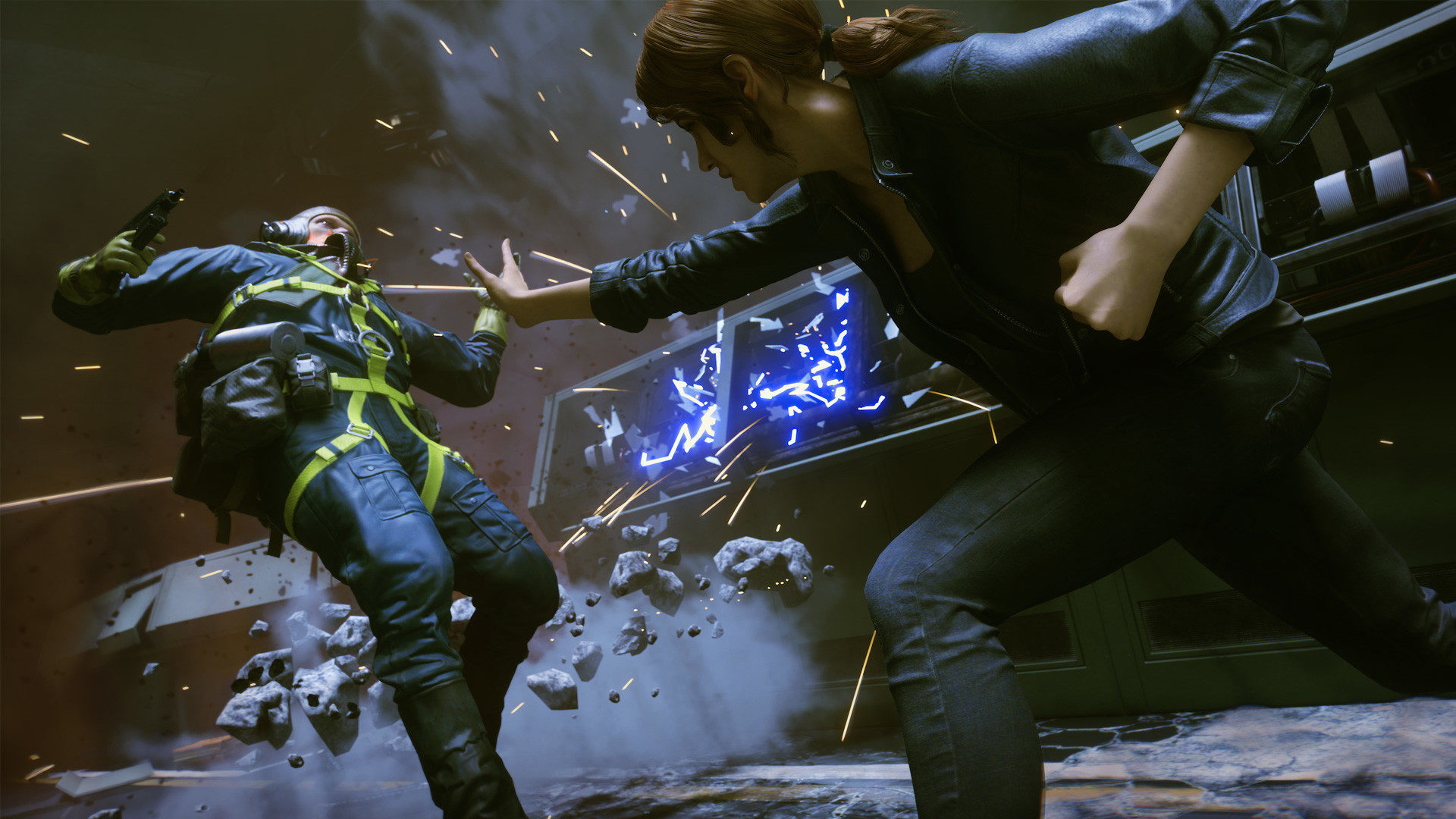Certain games benefit from the additional horsepower that the nascent generation of consoles provides. My experiences with games like Destiny 2, Battlefield V, and Sekiro: Shadows Die Twice have improved immeasurably playing them on Xbox Series X—well, I guess you can technically measure the additional pixels and frames per second. Despite the fact that these games are all multiple years old at this point, they make me feel like I am in the next gen. Maybe this is on account of how underpowered the last-gen consoles were by the time their successors arrived, but given that there are barely any real next-gen games out right now, I’ll take what I can get.
However, there are several differences between those three games and Control: Ultimate Edition, the upgraded-for-next-gen version of Remedy’s award-winning instant classic. The most obvious difference is that Xbox Series X and PlayStation 5 players don’t have to buy a new version of Destiny 2, Battlefield V, and Sekiro to experience their various improvements. As a general rule, I don’t like to consider things like “price” and “value” when reviewing games. In fact, it’s an EGM policy that we judge games based on their own merits. If a game is good, it’s good, no matter how long it takes to beat or how much it costs. But, in this case, I’m not technically reviewing Control: Ultimate Edition, and to not comment on the situation surrounding it would be ignoring a major aspect of this game’s release.
I don’t think there’s anything wrong with publisher 505 Games selling Control: Ultimate Edition as a new game and not giving away the next-gen console upgrades for free. The gaming community became comfortable very quickly with the idea that they deserved to get next-gen upgrades for no additional cost, thanks to Xbox’s “Smart Delivery” and PlayStation’s somewhat confusing upgrade system. These processes are valuable marketing opportunities for two consoles that don’t have much in terms of games, but that doesn’t mean that developers and publishers are beholden to giving away their labor—especially an independent developer like Remedy.

This does then mean that Control: Ultimate Edition can be judged as a separate product, but whether or not it’s worth playing depends on your previous experience with Control. Despite the technical issues it had on last-gen consoles, Control was about as memorable an experience as you can get in video games. There’s a reason we gave it our Game of the Year award in 2019. Control: Ultimate Edition is, as expected, a better version of what was already a great game. But I can’t fully say that it’s worth purchasing if you’ve already bought and played the original and its DLC.
This isn’t because the upgrades that come with Ultimate Edition aren’t great. They are. Control has a physics and particle system that results in the kind of over-the-top, post-shootout micro-destruction that would make John Woo envious, and seeing glass shatter and concrete explode at 60 FPS is a treat in Performance Mode. Likewise, the Oldest House’s pristine surreality is even more atmospheric with Graphics Mode’s ray-tracing. I often found myself jumping between both because I still haven’t decided which I like better. Thankfully, Ultimate Edition lets you switch on the fly without having to restart the game, so you don’t have to decide. If you haven’t already played Control or the DLC, and you have access to a next-gen console, the Ultimate Edition is easily your best option.
But my biggest reservations about Control: Ultimate Edition stem from how good the original version already was.

Obviously, the original Control had its issues, mostly around its frame rate drops. Given all the physics and particle effects flying around the screen at any given moment, it’s not surprising that the base last-gen consoles had trouble maintaining a consistent frame rate, even at 30 FPS. But despite these issues, Control was universally accepted as a great and memorable game.
A lot of this was due to its snappy, rhythmic combat that required on-the-fly resource management and creative problem-solving. But what made Control so memorable was its world—not even its story about deeply human characters operating on the edges of reality, but its overall vibe.
Control is one of those games that just had that special something that made it likable. Really, that’s what makes Remedy such an interesting developer. None of their games are perfect, but it’s almost because of these imperfections and the studio’s willingness to embrace these imperfections in its single-minded mission to create deeply lasting impressions in its players that their games work. Remedy games, especially Control, have garnered comparisons to Twin Peaks many times, but I don’t think it’s because their games are “weird” and “dark.” I think it’s because, like Twin Peaks, the imperfections are what make Remedy’s games feel alive.
Beyond its gameplay and its writing, this unquantifiable characteristic is what makes Control so enjoyable to so many players. It’s the kind of thing that can’t be improved by next-gen hardware. Sure, it’s nice to watch Twin Peaks in Dolby Vision, but do you have to?
A digital copy of Control: Ultimate Edition provided by 505 Games was used in the process of writing this article.

Michael Goroff has written and edited for EGM since 2017. You can follow him on Twitter @gogogoroff.
